Surprisingly,
at the Central Zionist Archives, we found a letter written by Emma
Goldman, one of the founders of the Anarchistic Movement of the beginning of
the 20th century. Goldman refused to toe the line with contemporary
revolutionaries and support the Communist Regime, especially when she witnessed
its many human rights violations.
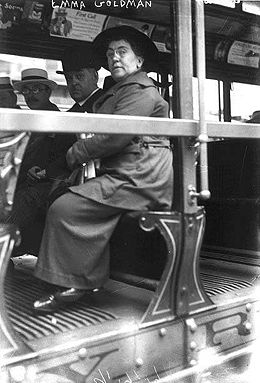 Emma Goldman (1869-1940), also known as "Red Emma", was a
charismatic figure in the Anarchistic Movement in the first half of the 20th
century. Goldman was born to a Jewish family in Kaunas, located at that time in
the Russian Empire. She immigrated to the US with her sisters when she was sixteen
and began working in the textile industry. After a brief marriage, Goldman moved
to New York in 1887 and began her career as a political activist. She met Alexander
Berkman (1870-1936), an author and an anarchist who became a linchpin in the
development of the Anarchist Movement at the beginning of the 20th
century. He had a significant influence on her. They were in love for a while
and became good friends later on. Berkman convinced Goldman to lecture about
Anarchism, work she did with great aptitude.
Emma Goldman (1869-1940), also known as "Red Emma", was a
charismatic figure in the Anarchistic Movement in the first half of the 20th
century. Goldman was born to a Jewish family in Kaunas, located at that time in
the Russian Empire. She immigrated to the US with her sisters when she was sixteen
and began working in the textile industry. After a brief marriage, Goldman moved
to New York in 1887 and began her career as a political activist. She met Alexander
Berkman (1870-1936), an author and an anarchist who became a linchpin in the
development of the Anarchist Movement at the beginning of the 20th
century. He had a significant influence on her. They were in love for a while
and became good friends later on. Berkman convinced Goldman to lecture about
Anarchism, work she did with great aptitude.
Goldman became a renowned speaker
among the working class at the end of the 19th century. She traveled
across the US and called for workers and the unemployed to stand up for their
rights for food, work, and a life of dignity, and became a prominent political
figure in the Anarchist Movement. Security forces defined her as a dangerous
woman who distributes "Anarchist and Atheist ideas". She was
imprisoned three times for inciting workers, advocating for contraception, and speaking against the mandatory draft in
the United States in World War I. Goldman was one of the founders of the
Anarcho-Feminist Ideology that, unlike the first Feminist wave, did not view women's rights in the judicial and political
system as the most crucial arena in the fight for women's rights. She professed
that women should free themselves from prejudices that limit them to
traditional female roles.
Goldman denied religious principles, marriage,
and conservative politics, and alleged that freeing humanity from these would free
all humankind from despotism.
"Our Comrades Who Languish in Russian Prisons"
Goldman
was deported from the US back to Russia in 1919, as part of a wave of
imprisonments and deportations of radical political activists, following the
October revolution of 1917. She traveled across Russia and was abhorred by the repression,
corruption, and oppression of free speech she saw everywhere she went. In 1921
she left for Europe and expressed her disappointment from the Communist
Revolution in a series of essays and lectures she gave across Europe. These stances
isolated her from revolutionary circles that expected her to support the
Communist revolution.

A
KOLHOSE IN CRIMEA, RUSSIA, 1925 (PHG\1023271)
A
letter written in German to a "comrade" in the Zionist Socialist
Party in 1925, kept in the Central Zionist Archives, reflects this era in her
life and thought:
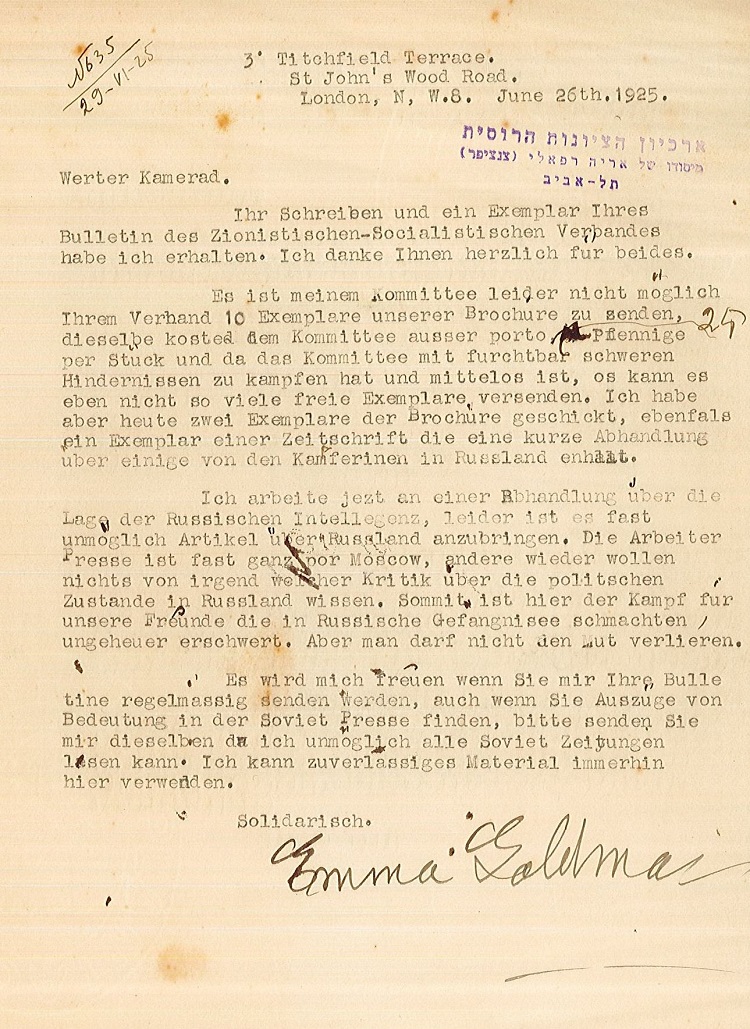
A letter from Emma Goldman to a
comrade in the Social Zionist Party, June 1925 (F30/59). The letter, kept in the files
of Arie Tzvi Tzantzifer, includes documents and photos of the beginning of the
Zionist movement in Russia.
"Right
now, I'm working on an essay about Russian Intelligence", Goldman wrote. Unfortunately,
there is almost no place I can get essays on Russia. The workers' press tilts
entirely towards Moscow. Other newspapers do not want to hear any criticism
about the political situation in Russia. Therefore, our struggle for our
friends languishing in state prisons is arduous. Nevertheless, we must not be
discouraged!"
"I will be
delighted to receive your brochure on a permanent basis. Please send me
important articles from the Soviet press, because I'm very interested in all
Soviet newspapers, as reliable sources are of good use to me. With solidarity,
Emma Goldman."
The
Socialist Zionist Party was founded in Kharkov in 1920 and evolved out of
'Tze'irey Tzion"- the National Zionist Movement of Russia, Poland, Serbia,
and Galicia- after the Bolshevik Revolution.
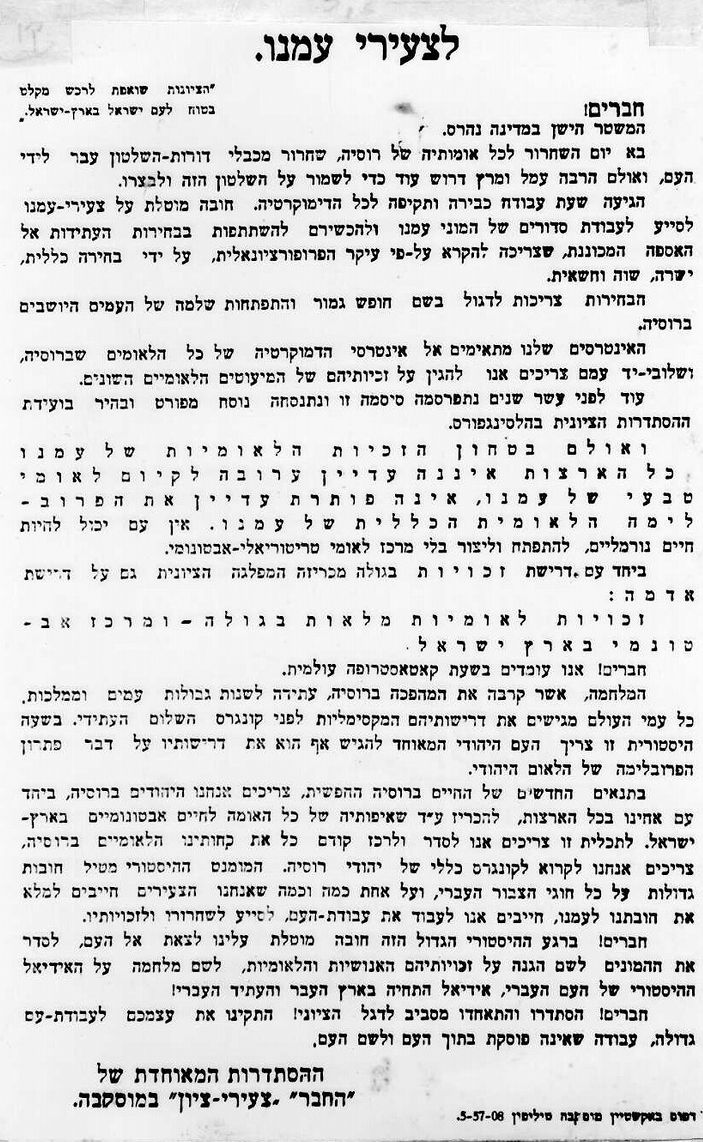
A
proclamation made by "Tze'iri Tzion" and the organized institution of "The Comrade" in Moscow after the Bolshevik revolution, 1917 (PHZPR\1252581)
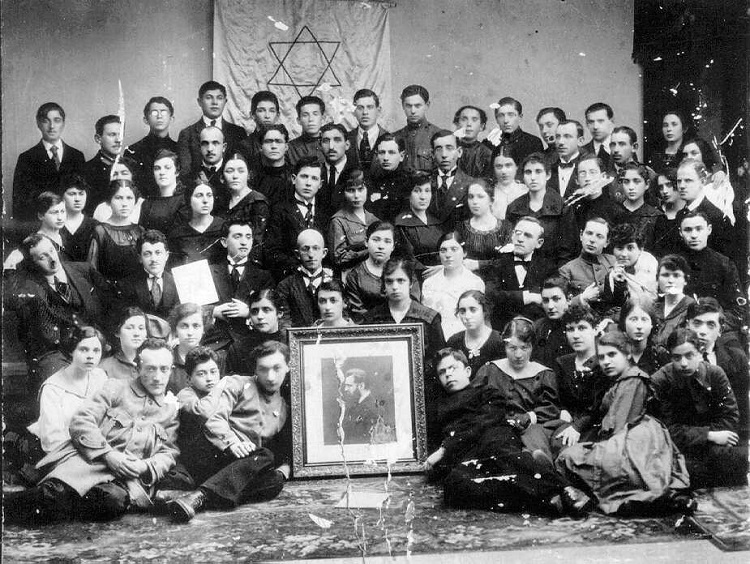
The
chairman of the Social Zionist Party was Israel Edelson (Bar-Yehuda). He later
became Minister of Interior and Minister of Transportation in the Government of
Israel between 1955-1959 and 1962-1966.
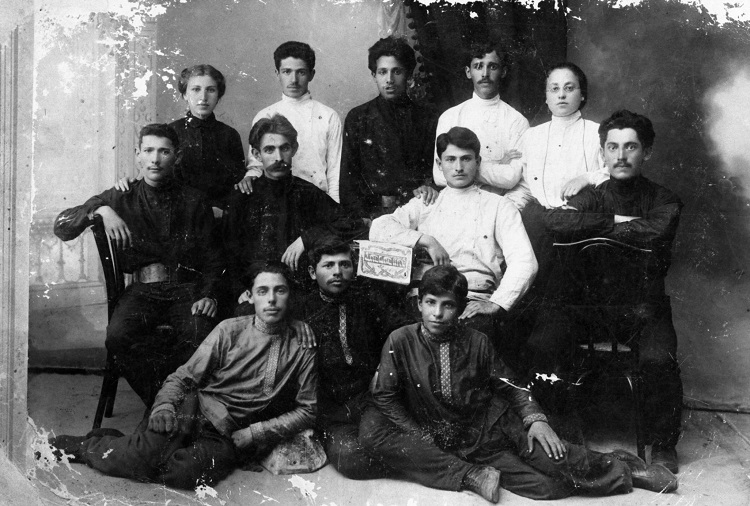
The
Social Zionist Party Committee, Kremchung, Ukraine, 1920-1930.
Although
the party acted in accordance with state laws, the Russian Secret Police saw it
as a security threat. They arrested many of its members between 1922 and 1924
in Kiev, Kharkov, and Odessa. Among them was Bar-Yehuda himself. Since 1925, the
party began adopting a more assertive line and even took a public stand against
the Russian government's oppression of Judaism and national
"bourgeois" groups. These actions caused the regime to intensify its
persecution of party members, and many of them immigrated to Israel. In 1926
the party ceased to exist in Russia.
Published on 25.3.2022